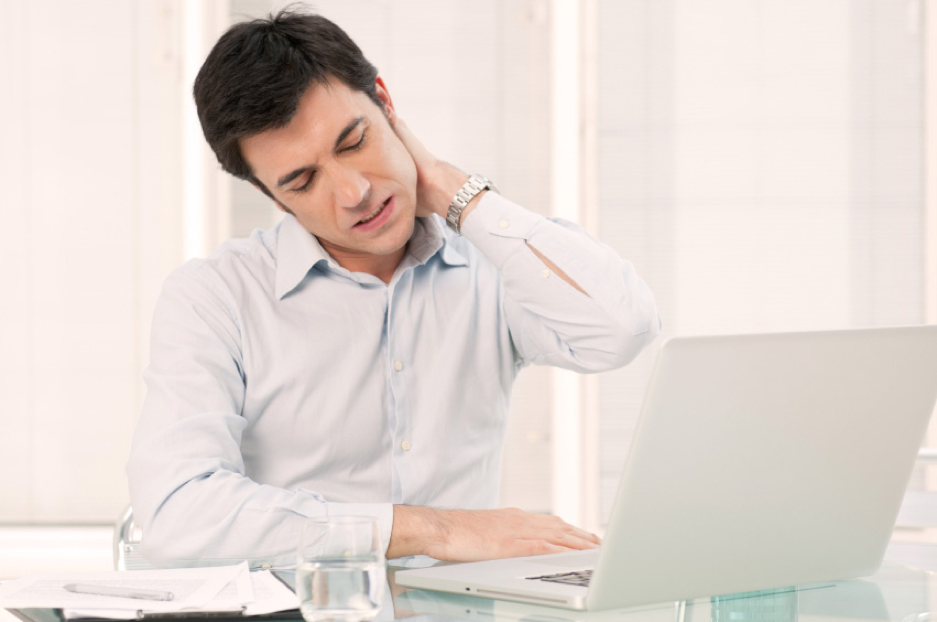The enormous benefits of exercise have been well-documented in literally thousands of scientific publications. There can’t be many people that don’t know that “exercise is good.” Now we’re learning something new…and it’s pretty frightening.
Sitting can kill you! That’s right…sitting. Especially sitting for long periods of time. While physical activity (i.e. exercise) is good, it appears that physical inactivity is dangerous. Very dangerous! Let’s take a look at the emerging data.
A paper published in Diabetes Care in 2008 reported that: Frequent breaks in sedentary activity may explain lower health risk related to waist circumference, body mass index (BMI), triglyceride levels, and 2-hour plasma glucose levels. (as you may know, those risk factors, along with triglyceride and HDL levels, are the factors that define the metabolic syndrome which dramatically increases risk of heart disease, stroke, diabetes and probably Alzheimer’s disease).
A study in the Archives of Internal Medicine in 2012 concluded that 30 minutes of physical activity is as protective an exposure as 10 hours of sitting is a harmful one.
Also in 2012, a paper in the British Journal of Sports Medicine indicated that one hour of sitting is the equivalent of smoking two cigarettes.
Holy smokes! Think about that!…especially if you have a desk job where you are paid to sit and stare at a screen, type on a keyboard, and talk on the phone all day.
According to Professor David W. Dunston, a researcher associated with the Australian Obesity, Diabetes and Lifestyle study, the most striking feature of prolonged sitting is the absence of skeletal muscle contractions, particularly in the large muscles of the legs (think quads, hamstrings and calf muscles).
This all should be rather alarming especially in light of my colleague Dr. Tim Church’s 2011 study that was published in PLoS. Using U.S. Department of Labor statistics, Dr. Church and his team at the Pennington Biomedical Research Center found that in 1960, 50% of Americans had jobs that required caloric expenditure. In other words they exercised as part of their work. By 2010 that number had dropped to 20%! Today, only one in five U.S. workers is physically active on the job. Most all of us today are “thought workers”…we are compensated for our brains, not for our bodies. We get paid to sit, stare at a screen, type on a keyboard and talk on the phone. For hours at a time!
This new body of data also is concerning for those that are retired. A 2014 paper published in the Journal of Physical Activity and Health found that “for those 60 and older, every additional hour per day of sitting is linked to a 50% greater risk of being disabled…regardless of the amount of moderate physical activity you get.
Wow!…that’s amazing! Even if you exercise 30 or 60 minutes a day, prolonged “couch potato” behavior will still dramatically increase your risk of becoming disabled!
What can be done? Simple, stand up!…on a regular basis. Just the simple act of getting out of your chair every 30 to 60 minutes has tremendous benefit. If you’re willing to do some toe-raisers, desk push-ups, or chair squats all the better! A short walk around the office works wonders as well. It doesn’t have to be much or be long. Just one minute every hour of so is all it takes.
Using the alarm on your smart phone can serve as a reminder (i.e. a trigger). ACAP Health offers a sophisticated, yet simple, software program to deliver customized anti-sitting programs into the workplace. Utilizing the concept of gamification this solution makes breaking up sedentary behavior easy and fun (“fun” is good!). Add in a simple incentive or two, and some social engagement, and you would be amazed how easy it is to change the behavior of desk-bound employees.
Remember that health is mostly a function of habits. Unhealthy habits, like prolonged bouts of sitting, over time are extremely damaging. It makes sense to pay attention to the science and intentionally develop ways to put your body in position to function at its peak for years to come.
Stay well!

